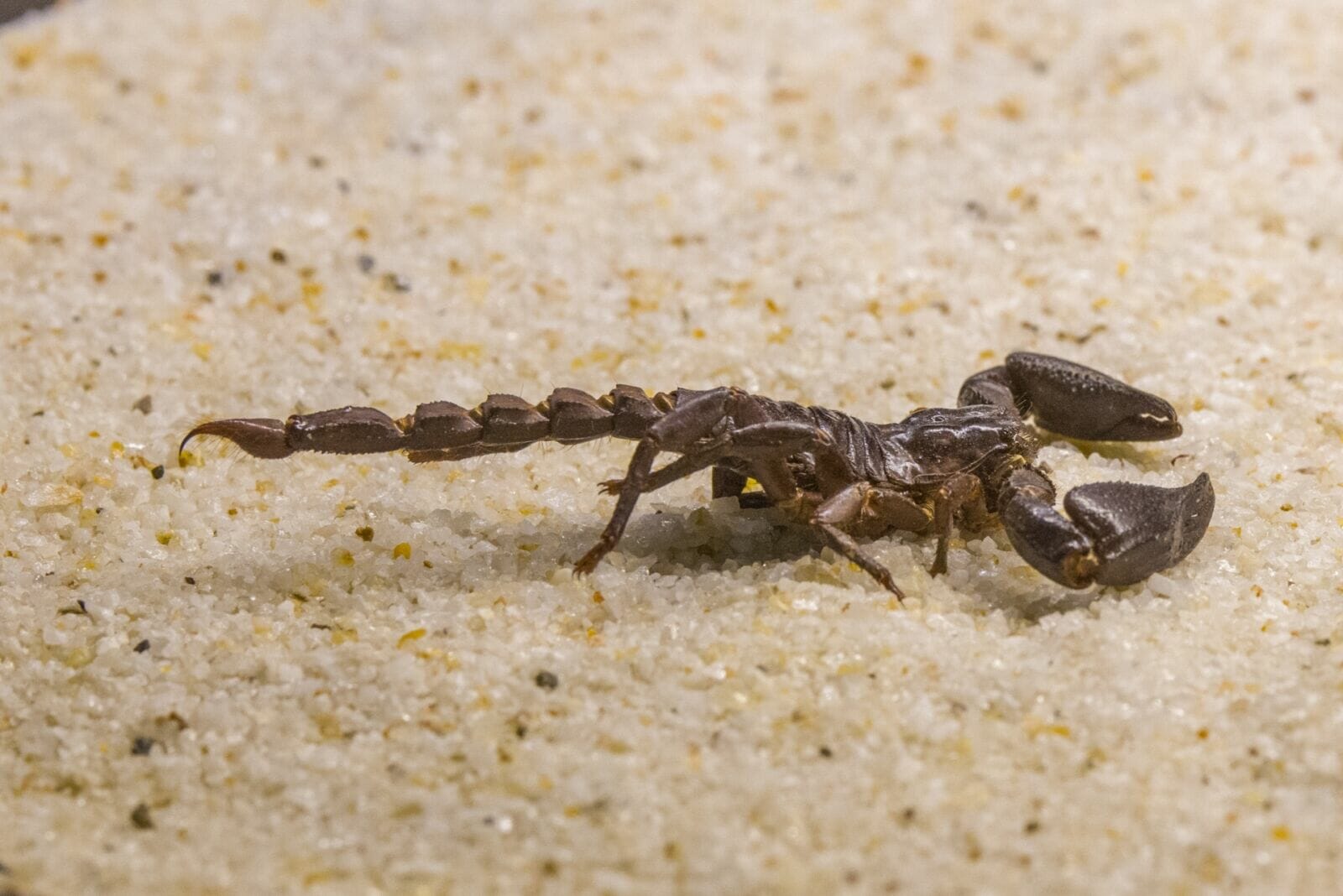This year’s active monsoon season isn’t only bringing in much needed rain it is attracting pests, like scorpions, into your home. And with it comes more scorpion stings.
The home is the perfect environment for scorpions as it is warm and dry. Scorpions can enter from any small crack or hole and settle in for the wet season to end. These pests are difficult to see and are experts in hiding so you often won’t even notice them until you feel that painful sting.
READ ALSO: Here’s where most Arizona rattlesnake removals take place
If you are unfortunate enough to get stung by one of these critters there are several things, you can do to help alleviate the pain and other symptoms associated with the venom from the scorpion. As a Naturopathic Doctor at Natural Kid Doc in Scottsdale I have treated numerous scorpion stings, and these are some symptoms you need to be aware of and some natural ways you can treat these stings at home.
Scorpion sting symptoms
Like many other insect bites and stings, your average scorpion stings may have certain symptoms like swelling, centralized pain, or numbness. The more venomous Bark Scorpion packs an even harder punch that may result in the pain disrupting the nerves causing the pain to travel to other parts of the body. Bark Scorpion stings may also result in muscle twitching, sweating, vomiting, accelerated heart rate and drastic changes in blood pressure. If any of these symptoms occur seek medical attention immediately.
Treatment
After being stung by a scorpion you may have a variety of symptoms. If these symptoms are on the milder side, swelling and pain, there are a few ways you can treat the sting with household items.
Ice:
If you have been stung by a scorpion the first thing you want to do is place an ice pack over the affected area. The cold will reduce swelling and help alleviate pain.
Meat tenderizer:
If the pain is still lingering after applying ice, consider using meat tenderizer on the sting. First wet the area and then place meat tenderizer or the sting location. The tenderizer helps break down the proteins in the venom resulting in reduced pain.
Garlic:
Garlic is another natural way to reduce pain and help heal the sting. Mash up a whole clove of garlic into a paste and cover the area of the sting. Garlic is packed full of anti-inflammatory and antibacterial properties helping to heal and alleviate the pain. Take note that applying garlic to the sting will burn at first but will subside over time.
Frankincense Oil:
Frankincense is used by many cultures around the world to treat bug bites and stings. Frankincense is known to contain antibacterial, anti-inflammatory, and antiseptic properties that will help with pain and swelling. If you are stung by a scorpion place a couple of drops of frankincense oil on the area and rub into the sting location.
Baking soda:
Baking soda will help cleanse the sting and provide almost instant relief to the area. You can use regular baking soda or that found in some toothpastes. When using regular baking soda add some water to create a paste. Take the paste and apply it over the entire area to ease the pain.
Salves:
Many salves can help with insect stings. One of the best to alleviate pain and reduce swelling contains calendula. Calendula is a flower that has many properties to help when it comes to insect stings. Apply a few drops of calendula oil to a half cup of coconut oil and mix. Then apply the salve to the sting. Let the salve sit for about ten minutes to help reduce the pain and swelling of the sting.
As the monsoon storms continue impacting the area scorpions will keep making their way into your home to hide from the rain. Understanding how to treat these stings if you encounter a scorpion will help ease a lot of pain and frustration. Remember if you experience any severe symptoms like sweating, accelerated heart rate, change in blood pressure to seek medical attention immediately.
Author: Stephanie Seitz MT (ASCP), ND, MPH is a licensed naturopathic doctor at Natural Kid Doc in Scottsdale, Arizona who specializes in women’s health and fertility. Seitz has spent the last 10 years at Southwest College of Naturopathic Medicine teaching medical students and treating patients




